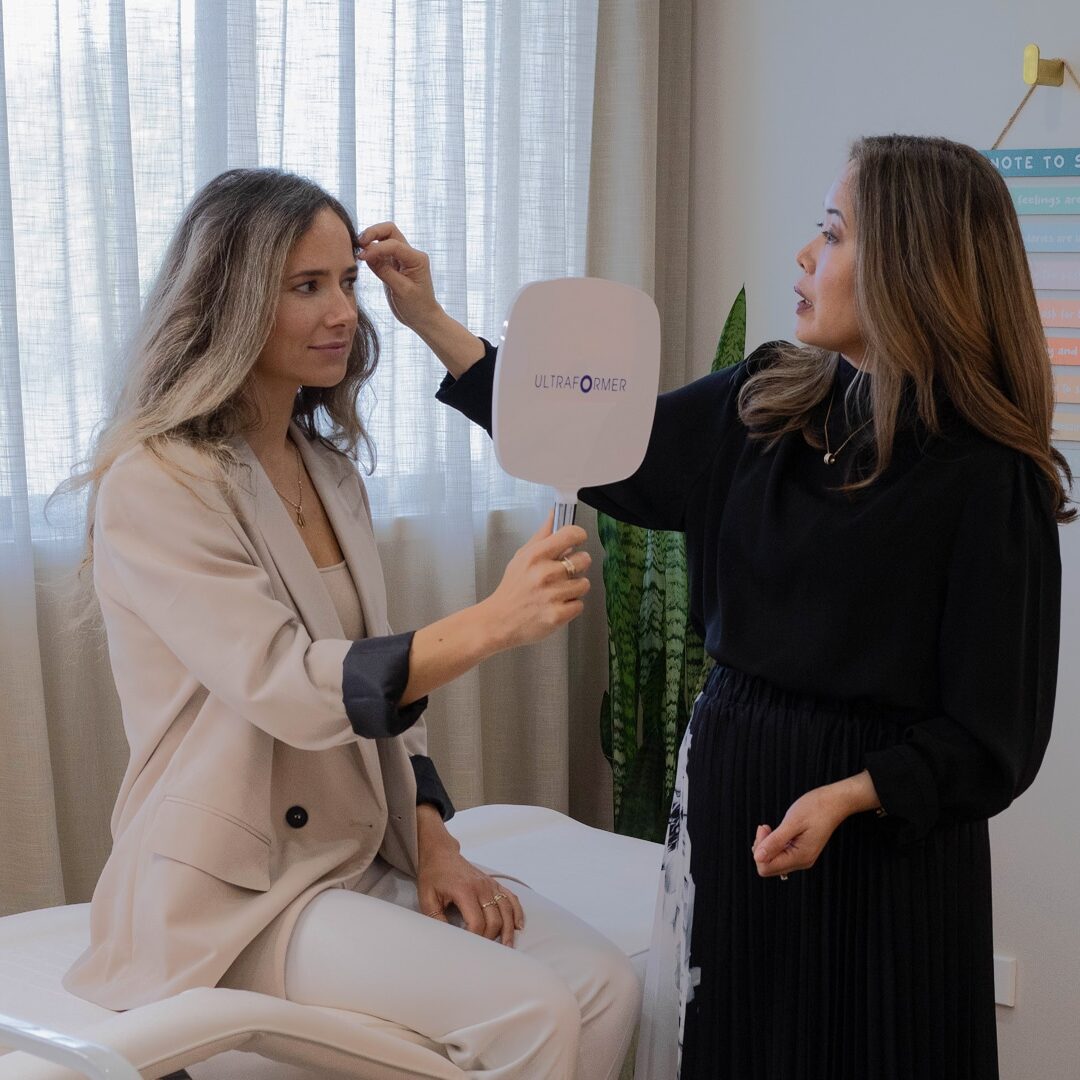Understanding the Root Causes of Hair Loss
Hair loss is influenced by multiple factors, including nutrient levels, inflammation, mental wellbeing, hormones, genetics, and overall health. Addressing these pillars holistically helps us uncover the root causes and build an effective, personalised plan to restore and maintain strong, healthy hair.

What’s Affecting Your Hair Health?
🌿 Nutrient Deficiency
Nutrient deficiencies can weaken hair follicles and disrupt the hair growth cycle. Vitamins and minerals such as Vitamin D3, Ferritin, Serum Iron, Zinc, Vitamin B12, and Folate are essential for strong and healthy hair. To identify any potential deficiencies, we recommend the following blood tests:
Key nutrients include:
- Vitamin D3: Promotes hair follicle growth; low levels can lead to thinning.
- Ferritin: Stores iron; insufficient levels weaken hair follicles and cause shedding.
- Serum Iron: Supports oxygen delivery to follicles; low levels impair growth.
- Total Iron: Ensures nutrients reach hair follicles; deficiencies hinder growth.
- Zinc: Aids keratin production; low levels weaken hair structure.
- Vitamin B12: For oxygen supply; deficiencies slow growth and trigger shedding.
- Folate: Supports cell division; low levels slow hair regeneration.
Your GP or a Registered Dietitian can help interpret these results and guide you toward effective supplementation or dietary changes.
To assist you with your nutritional needs, Jay's Medispa has partnered with a trusted IV provider , Louise McGoldrick, from The Nutrient Nurse. You can visit her website here: www.thenutrientnurse.nz
🌿 Inflammation and Hair Health
Scalp inflammation, whether caused by conditions like seborrheic dermatitis, psoriasis, or general irritation, can damage hair follicles and hinder growth. This inflammation creates an unhealthy environment for your hair, slowing its natural growth cycle.
Reducing inflammation is vital for creating an optimal environment for hair growth. You can take steps to support your scalp health by:
- Practicing proper scalp care with gentle, anti-inflammatory products.
- Incorporating a nutrient-rich, anti-inflammatory diet (think omega-3s, antioxidants, and whole foods).
- Quitting smoking, as it increases systemic inflammation and restricts blood flow to hair follicles.
- Making lifestyle changes, such as regular exercise, quality sleep, and stress management, to lower overall inflammation levels.
By addressing these factors, you can create an optimal environment for hair follicles to grow and flourish. Small changes can make a big difference!
🌿 Mental Wellbeing
Your mental health plays a bigger role in hair growth than you might think. Stress and emotional strain can disrupt the hair growth cycle, with conditions like telogen effluvium often triggered by physical or emotional stress. This leads to excessive shedding, which can feel overwhelming.
Supporting your mental health helps reduce the impact of stress on your hair:
- Practice mindfulness: Techniques like meditation and yoga can help lower your stress levels.
- Prioritise sleep: Quality sleep is essential for the body’s repair processes, including hair growth.
- Stress management: Find activities you enjoy that help you relax, such as exercise, hobbies, or spending time with loved ones.
- Relaxation techniques: Deep breathing and regular breaks can keep stress from escalating.
By taking care of your mind, you’re also nurturing your hair’s health and resilience. A calmer you equals stronger, healthier hair.
To assist you with your mental wellbeing, Jay's Medispa has partnered with a trusted advisor, Tersia Woodenberg, from SoulCheck Holistic Therapy. You can visit her website here: www.soulcheck.co.nz
🌿 Overall Health
Healthy hair starts with a healthy body. While we often look for surface-level solutions, many common hair concerns begin far beneath the scalp. Your overall wellbeing including how you eat, move, sleep, and manage stress has a profound influence on how your hair grows, sheds, and recovers. When the body is under pressure, hair is often deprioritised, leading to thinning, dullness, or excessive shedding.
Here’s how overall health influences hair quality:
-
Chronic stress and poor sleep: Physical and emotional stress can shift large numbers of hairs into the shedding phase (telogen), while inadequate sleep interferes with cellular repair and recovery.
-
Smoking: Tobacco use reduces blood flow to the scalp, restricts oxygen delivery to follicles, and increases oxidative stress—all of which can impair hair growth and quality.
-
Underlying health conditions: Illnesses like autoimmune disorders, gastrointestinal diseases, and cardiovascular issues can all affect hair vitality, sometimes before more obvious symptoms appear.
-
Medications and medical treatments: Certain medications may contribute to temporary or long-term hair changes. Chemotherapy, for example, causes anagen effluvium, while other drugs may affect hair as a side effect.
Taking care of your body isn’t just about feeling good it’s also one of the most powerful ways to support healthy, resilient hair. Hair follicles are living structures that depend on consistent nourishment, oxygen, and cellular energy. When your body is in balance, your scalp is more likely to maintain a steady growth cycle and recover from stress or illness. But when overall health is compromised, hair growth slows, strands become weaker, and shedding may increase.
🌿 Hormonal Health
The Role of Hormones in Hair Loss
Hormonal imbalances are a significant—and often overlooked—contributor to hair loss, particularly in women. Life stages such as puberty, pregnancy, postpartum recovery, perimenopause, and menopause all bring hormonal shifts that can disrupt the hair growth cycle.
In addition, conditions like PCOS (polycystic ovary syndrome), thyroid dysfunction, chronic stress, or changes in birth control or HRT (hormone replacement therapy) can lead to increased shedding or noticeable thinning.
What Does Hormonal Hair Loss Look Like?
Unlike hereditary hair loss, which often appears around the crown or temples, hormonal hair loss typically shows up as:
-
Diffuse thinning across the scalp
-
A wider part line
-
Hair that feels finer, flatter, or less dense than usual
These changes may come on gradually or feel sudden depending on the underlying hormonal trigger.
How Hormones Can Affect Hair Health
-
Estrogen & Progesterone: These hormones help support the anagen (growth) phase of the hair cycle. A drop—especially during menopause or postpartum—can shorten growth time and increase shedding.
-
Androgens (like DHT): Even at normal levels, women with increased sensitivity to DHT may experience follicle miniaturisation and thinning, particularly around the hairline or temples.
-
Thyroid Hormones: Both underactive (hypothyroidism) and overactive (hyperthyroidism) thyroid function can cause hair to shed excessively or become brittle.
-
Cortisol (Stress Hormone): Chronic stress elevates cortisol levels, which can push more hairs into the resting (telogen) phase prematurely—a condition known as telogen effluvium.
Understanding how hormones affect your hair is the first step toward an effective solution blood work with your GP or hormone specialist can help identify any imbalances, while treatments like PRP, microneedling, or EXO-Grow support the scalp and follicles from the outside. With a personalised plan that addresses both internal and external factors, many clients see real improvements in hair density and overall wellbeing.
🌿 Genetics
Genetics can play a significant role in hair loss, with conditions like androgenetic alopecia causing hair follicles to shrink and weaken over time. These changes can gradually reduce hair density and alter the overall hair growth cycle.
One of the key drivers behind this process is a hormone called DHT (dihydrotestosterone). DHT is a byproduct of testosterone and plays a natural role in the body—but in people with a genetic sensitivity, it can interfere with the normal function of hair follicles.
Here’s how genetics and DHT can impact hair health:
-
Follicle miniaturisation: Hair follicles shrink, producing thinner and weaker hair strands.
-
Shortened growth phase: The anagen (growth) phase of the hair cycle becomes shorter, leading to less time for hair to grow longer and thicker.
-
Increased shedding: More hair enters the telogen (resting) phase prematurely, causing increased hair fall.
-
Reduced follicle activity: Over time, some follicles may stop producing hair entirely, leading to visible thinning or bald patches.
-
DHT binding to follicles: In genetically predisposed individuals, DHT attaches to receptors in scalp follicles, gradually causing the changes listed above.
While DHT is not harmful in itself, its effects on the hair cycle are significant when combined with a genetic predisposition. This is why hair loss patterns often run in families and why certain areas like the crown and temples are more commonly affected.
While genetic factors can’t be altered, understanding how they interact with hormones like DHT is the first step in creating a strategy to support and maintain healthy hair.
Taking early, informed action can help preserve your hair for the long term and in some cases, reawaken dormant follicles and restore fuller density.
How We Can Help
At our clinic, we offer Platelet Rich Plasma (PRP) therapy and Exosome therapy, advanced treatments that align with the six pillars of hair health. PRP stimulates natural hair growth by improving nutrient delivery to hair follicles, reducing inflammation, and enhancing follicle regeneration. Exosome therapy takes this a step further by delivering powerful growth factors, proteins, and genetic material that promote hair follicle repair and regeneration at a cellular level. Together, these therapies work to strengthen hair roots, improve the health of the scalp, and combat genetic hair loss by rejuvenating dormant follicles.
A Personalised Approach
Please note: This is not an exhaustive list of all possible causes of hair loss. Every individual is unique, and additional factors may be involved. A thorough consultation and appropriate medical testing are recommended to identify the most effective treatment plan for your specific needs, which should be done in parallel to treatments by your primary care physician.
Unsure which treatment is the best fit for you?
We offer FREE consultations for both new and returning clients, designed to assess your goals and guide you toward the treatments and products that will deliver the best results for your skin and hair. Let’s work together to create a plan that helps you achieve lasting transformation.


